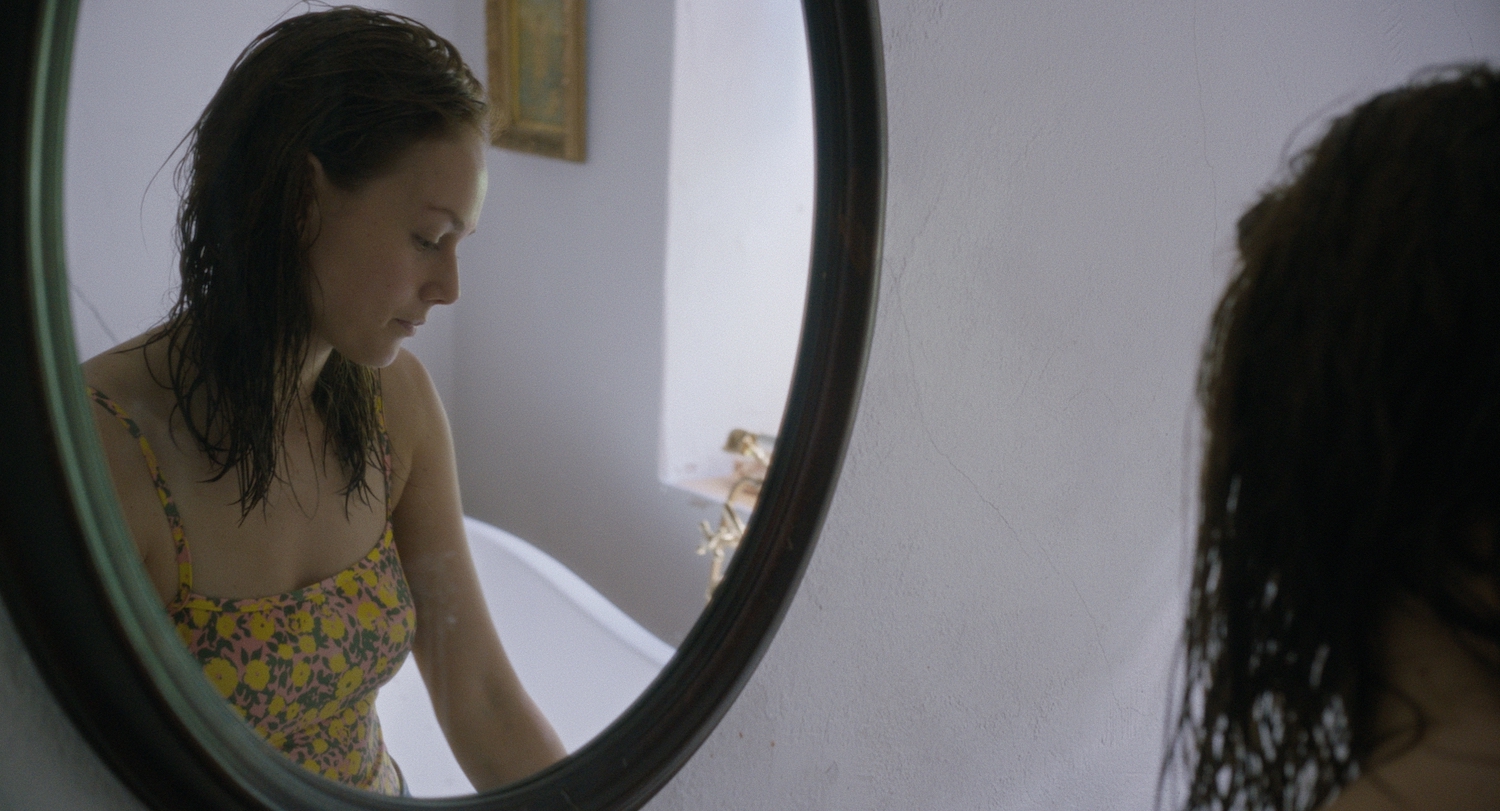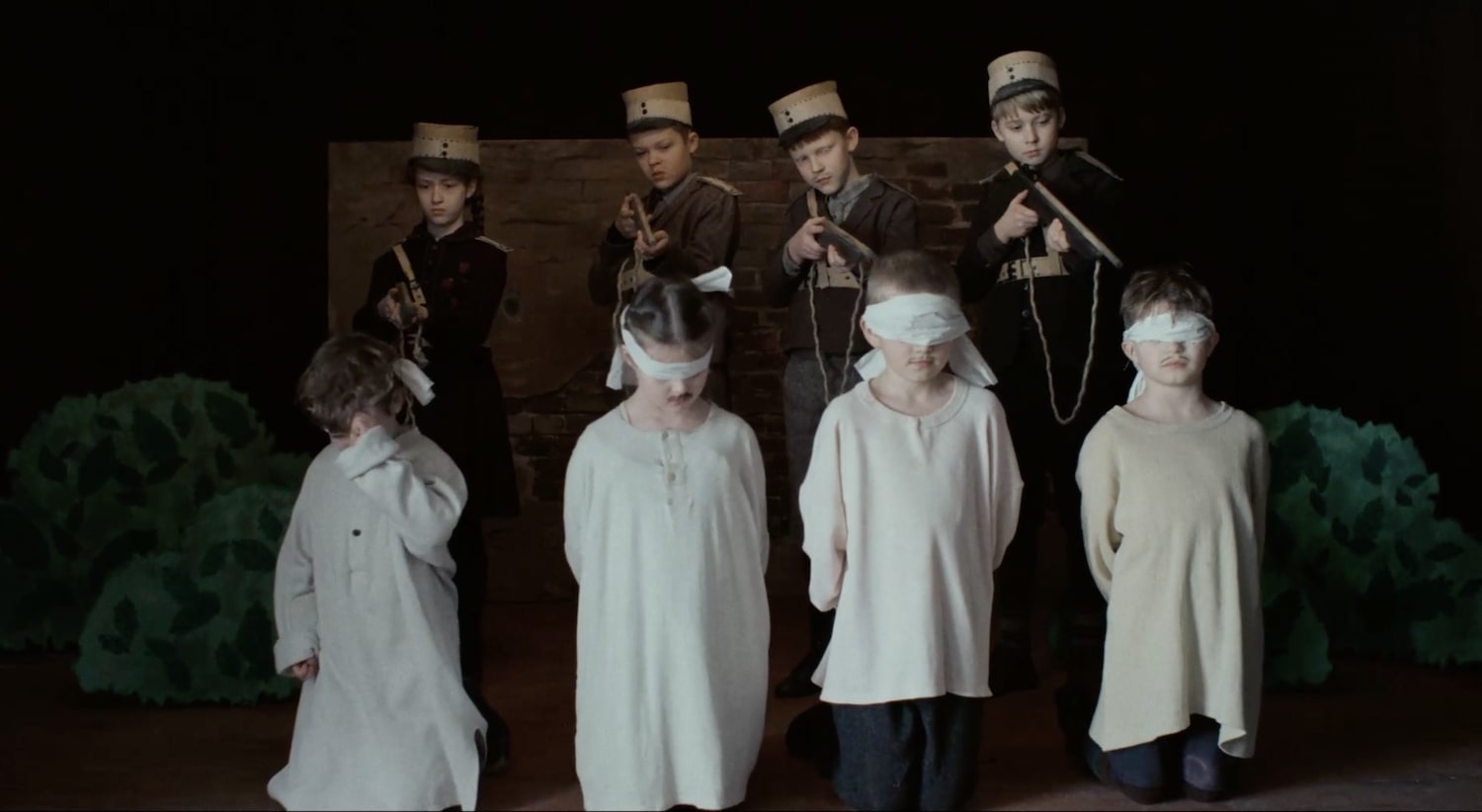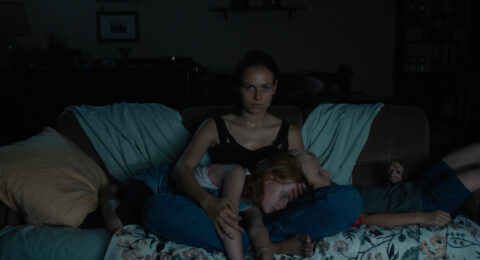I wasn’t going to write a second piece on the 2022 Tallinn Black Nights Film Festival. I was going to only watch the World Cup. But screeners started sneaking into my inbox, demanding to be seen. They haunted my dreams. They did jump-scares. So, I’ve caved in and managed to take a cursory look at two Lithuanian features, straight out of the Baltic Competition.
Lithuania, perhaps unsurprisingly, is not in the World Cup, but they have other means of national pride. Like telling you about their co-parenting commonwealth with Poland from about five centuries ago. Or their lively film scene, with today’s offerings offering two rather different visions of how national culture can come under threat, both at home and abroad.

France to the West
When I was at school, we did an exchange with a school in Aurillac. I spent a week or so in a house in the French hills. I have a clear memory of playing Fable on my friend’s laptop and messing around with the remote-controlled shutters, opening and closing on the misty, romantic countryside. The hosts were lovely, although we couldn’t actually communicate due to my non-existent French. They tried to feed me with fresh cow’s milk, which is actually kinda solid and weird. I didn’t like it. At all. I never felt remotely connected with France. In fact, I never felt more English. France has a way of doing that to people.
At least I only had to stay a week. In feature debut Remember to Blink (Austeja Urbaite, 2022, feature and above), Lithuanian foster children Karolina (Inesa Sionova) and Rytis (Ajus Antanavičius) are condemned to live in France forever, after being adopted by Jacqueline (Anne Azoulay) and Leon (Arthur Igual). Aiding the transition is the young Lithuanian au pair Gabrielé (Dovilė Kundrotaitė). At first, it seems like a natural culture clash. Gabrielé’s French is much better than mine ever will be, but she stumbles over words, the couple taking great pleasure in showing her the correct (French) way of saying things.
At first, this seems like an affectation. After all, they must really care, if they want to adopt. But in one telling scene, when Gabrielé asks why Lithuanian children, she says it’s because she had a Russian grandmother. She says… it’s basically the same. Now, if you really want to annoy people from almost any Eastern European country, just tell them they’re just like Russia. Except for Belarusians. They don’t mind as much.
Maybe [1].
This sets the culture-clash drama into place, which interrogates the way progressive western Europeans talk about diversity on the one hand while forcing assimilation on the other. After Leon basically disappears for most of the movie’s runtime (its kinda odd when you think about it), we are left with two women with two very different views on integrating children into a new culture. It starts with the small things, like whether to teach them French outright or translate from Lithuanian, then turns into the awful, like outright gallicising their names. All the while, the myth of Medusa is lightly woven into the story, from the pet snakes Leon keeps to his (frankly, rather unimpressive) art project.
But while Greek myth is blood and violence, Remember to Blink is comparatively anaemic. I wanted the Gorgon references and the gothic potential of the film to really stretch out, to provide some tension, some genuine psychodrama. There was a rich opportunity for something outrageous to happen to truly snap this conflict into gear. Instead, using close, intimate camerawork, Urbaite prefers to dwell on the smaller details — like the way tender, sisterly way Karolina plays with Gabrielé’s hair, or the creaking, creepy sounds of the oppressive, dusty house.
And favouring mood over genre makes sense to a certain degree. It certainly gets you into places like the Baltic Competition at Tallinn. But more drama would’ve illuminated the themes of the film much better, giving us something more tangible to (remember to) think [2] about in the future.
Remember to click the link and subscribe to my newsletter.

Russia to the East
We mentioned the Russians earlier. They’re in The Poet (Giedrius Tamosevicius, Vytautas V. Landsbergis, 2022, above) too. The used to be called the Soviets. They’d insist everyone they invaded was a Soviet too.
We are thrust into 1947, a time of heightened civil unrest. The Soviets are in charge, but there are pockets of resistance in the form of armed partisans. Between occupation and resistance are the regular folk, who insist that they just want to live. Perhaps, Kostas (Donatas Zelvys), the poet, just wants to live too. Expelled from the Lithuanian Soviet Writer’s Union, he is living out in the countryside, working as a teacher. Everyone thinks very highly of him indeed, the children reciting back to him his compromised propaganda poems about life on the kolkhoz and the glories of Lenin.
Zelvys plays Kostas as a wounded man, without a shimmer of pride, adrift in an uncertain world. It’s a violent one too. In one particularly accomplished scene, a recital of the execution of communist revolutionaries is interrupted by partisans, who throw a fake grenade into the school hall. Kostas notices something interesting here. One woman didn’t flinch. He assumes, correctly, that she’s part of the partisans. He decides to join them too.
Thus begins a long, torturous journey of finding out where Kostas’ allegiances truly lie. Soviet classic My Friend, Ivan Lapshin (Aleksey German, 1985) comes to mind, but only on a narrative level, as The Poet lacks German’s mystical and poetic elements in favour of what I can only describe as a broadcast television aesthetic. While the camerawork has few faults — including one striking scene as the partisan camp comes under attack — the sharp, high-grade sheen of the project felt off to me. For a film about living in the grey areas, it could’ve done with some more literal grey areas. Another simple thing was the capturing of candlelight. Should I be seeing the light itself glare and make lines, like my glasses are smudged or I’m filming it on my phone? It should’ve looked a whole lot better than that.
With artists becoming compromised at this very moment in parts of Ukraine, this is a timely film, and perhaps one of national importance and pride for Lithuania. It even won the Baltic Competition, so other people must be impressed by the story. But I was disappointed. I think it lacked urgency or shock value. I didn’t feel mad or disappointed, but just mostly bored, especially in the sluggish back half.
Perhaps it’s my mood: a Hollywood adaptation, perhaps called The Resistance Writers, might have suited my better. Nonetheless, along with Remember to Blink, it shows that Lithuania is a country that thinks a lot about how its culture, its people, and its identity, is a precious tangible thing, and something worth fighting for; not just then, but now, and also in the future. Perhaps we can also hope for some better films to come too.
Things To Come
I probably won’t write anything until the new year, unless I feel particularly inspired by something. But as the only people that usually read these things are other writers, I thought I’d mention that Journey Into Cinema is looking for contributors from January onwards. Learn more here.
- This is purely based on one anecdote.
- It took me like an hour to come up with this poorly-worded pun
Redmond is the editor-in-chief of Journey Into Cinema.
